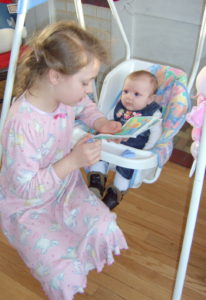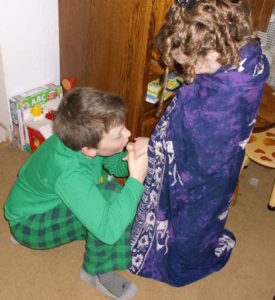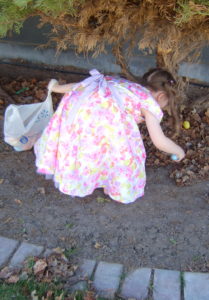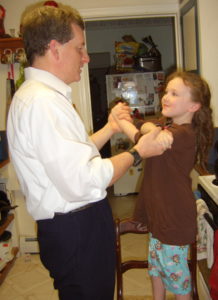
Do you ever have conversations with God? Have you ever vented your feelings to God as you would to your best friend? My conversations with God have covered almost every imaginable topic. Yes, I have talked with God about politics, the weather, and religion.
We often try to make our prayers, eloquent lists of requests, while we hold little hope of hearing any response. Perhaps it is that we do not expect a response. Therefore we are surprised when God answers prayer. We often act like God will not be able to handle our raw emotions.
Some of the most intense conversations I have had with God have been in challenging times. Times when I would ask, “God, do You know what You are doing? God, do You have any idea what is going on? Have You forgotten me?”
I became the pastor of a small church upon graduation from college. Several years passed, and my wife let me know that we were expecting a baby. Things went as planned for the first 36 weeks of the pregnancy. Then the unexpected happened. We visited the doctor for a routine checkup, and the doctor discovered that the baby had a heart rate so fast it could not be counted by just listening to it. The news got worse when the fetal heart rate monitor was used to try to count the heartbeat. The baby had a heart problem. This condition caused part of the heart to beat at a regular rate while the other part of the heart attempted to beat at twice that speed. We were transferred to a hospital about an hour away from our home to try to treat the problem. The doctor decided that the best thing would be to deliver the baby by caesarian section. I was there and watched the operation. I will never forget seeing the baby for the first time. She was a rosy pink, had dark hair, and a set of lungs that let us know that she did not like being removed from the warmth of the womb. The nurses immediately whisked the baby away to the neonatal intensive care unit to have her heart worked on.

I was able to visit the baby several hours later. I was shocked when the nurse pointed her out to me. The pink, squalling baby I had seen in the operating room now looked lifeless, the pink skin was now a mottled purple, and the breathing was only happening because of a ventilator. Everyone there stayed far away from me like they did not want to have to help me understand what was happening. I believed the baby was probably dying.
There was not anyone I could call to walk with me through this time. I was the pastor, the leader of the church. Leadership lends itself toward isolation. As a leader, you are walking out in front of everyone else. I felt the pressure to be a perfect example. My frustration and fear boiled over at God, and I asked, “Is this really how You behave? Are you just going to tease my wife and I with this baby? You are going to let us go through all we have experienced these last few days and then take the baby away? I have tried to follow You faithfully, and this is how You reward us? God, what are You doing?”
God was not offended when I lashed out in rage about the situation I did not understand, and His plan that I could not see. He was not upset with me for being angry. God recognized where I was and what I was experiencing. He understood the context of my questions and accusations.
Prayer does not have to be pretty. There is no requirement to be eloquent. Your prayers may be full of pain and rage. Times, when you are not even able to express what you are feeling and thinking your prayers, may sound incoherent to other people listening, but God understands what you are saying. Our prayers are not just background noise for God.

I wonder what Elijah thought as he prayed for rain to end the drought in Israel. He had just seen God answer a short prayer with fire that even burned up the water around the altar. Now Elijah was praying for rain. He sent his servant to look out across the sea for rain clouds. The servant saw only clear skies. What did Elijah think as he continued to pray and sent the servant the second and third times, then a fourth, then a fifth time? I wonder if he thought, “What is going on God, You answered my short prayer for fire, but You are not answering me now? You are going to make it look like that last prayer was a fluke.” Elijah continued to pray and sent the servant the sixth time. Then on the seventh time, Elijah sent the servant, there was a report of a tiny cloud in the distance. Elijah knew that the answer to his prayers had come. (Read the complete story in 1Kings 18:16-46)
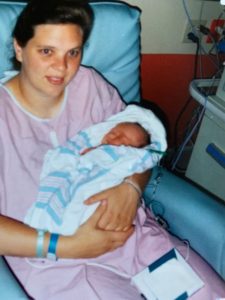
I do not claim to understand God fully, but I do know He hears our prayers. He loves to give good things to those who ask. (Matthew 7:11) God did allow our baby to recover from her problems. She did go home with us. She has grown up and served as a missionary in South America. I rarely think of her, but what I remember that almost lifeless baby in the hospital. Her life is a miracle. I remember the days when I lashed out at God, and He supported and comforted me. He understood my angry prayer, even though it was not in a composed and measured tone.
Prayer is an essential aspect of living in God’s shadow. If we do not converse with God, we will not live close enough to reside in His shadow. Join me as I examine other aspects of talking with God in my next few posts.


